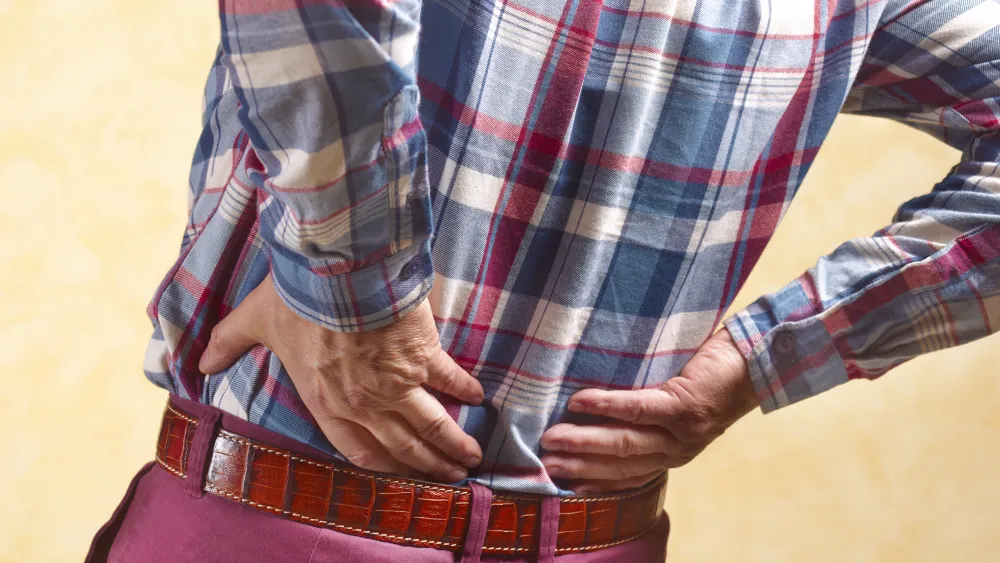Today's Medicine
Kidney Stones: Understanding and Preventing a Common Health Issue
Published: April 5, 2022

Did you know that one in 10 people may experience a kidney stone at some point in their life?
Kidney stones, which are hard deposits made of minerals and salts that form inside the kidneys, most commonly occur when there is an excess of calcium in our urine.
Small stones that form may pass out of the body easily in urine, but larger ones can get stuck and result in pain and injury to the kidneys. Kidney stones are often harmless if identified early, but it’s important to know when you might be dealing with one and how to prevent them.
Why Do They Form?
One role of the kidney is to break down and eliminate waste in the form of urine. If the urine is too concentrated with certain wastes, those substances may begin to form small crystals in the urine, which accumulate into a solid mass, or stone. The stone can then travel from the kidney and into the urinary tract, where it can cause discomfort.
Some risk factors for kidney stones are:
- Diet high in salt, sugar or animal protein
- Family history
- Not drinking enough fluid
- Obesity
Common Symptoms
How do you know if you have a kidney stone? Keep an eye out for any of the following symptoms:
- Severe, sharp pain on either side of the lower back
- Dark or red urine
- Pain during urination
The pain associated with a kidney stone may change as it moves through the urinary tract. If the stone is larger, it might cause bigger disruptions.
More severe symptoms may include:
- Fever and chills
- Nausea or vomiting
Diagnosis
Kidney stones are diagnosed by:
- Imaging such as a CT scan or ultrasound
- Physical exam
- Symptoms
Treatment
Most stones are passed through the urinary tract, but it may take time for the stone to exit the body with urine. Your doctor may recommend common pain relievers to help with discomfort and ask you to increase your water intake to help flush a stone out of your system.
Depending on the size and location of the stone, as well as complications, surgery may be necessary to break up the stone.
Here are some common ways that doctors are able to treat kidney stones:
- Cystoscopy and ureteroscopy
- Use of a cystoscope or ureteroscope to look inside the urethra and bladder to locate the stone and either break it up or remove it
- Percutaneous nephrolithotomy
- Use of a nephroscope directly inside the kidney through a small incision in the back to identify and break up the stone
- Shock wave lithotripsy
- Use of shock waves outside the body to break up the stone to help it pass with urine
Prevention
If you’re hoping to avoid the discomfort of kidney stones, consider the following lifestyle interventions:
Maintain a normal body mass index (BMI). BMI is a calculation based upon your weight and height. A BMI of greater than 30 increases your risk for kidney stones. A normal BMI is 18.5 to 24.9 and is associated with a decreased risk. You can learn your BMI by using an online BMI calculator.
Drink an adequate amount of fluid. Your fluid requirements fluctuate depending on your exercise routine, the temperature and humidity where you live, your body size and strength or any illness you may be battling. A good way to tell if you’re getting enough water is to check the color of your urine (should be a pale yellow and clear) and follow your thirst cues.
Eat a diet rich in fruits and vegetables. Diets that are plant-heavy, low in salt and low in animal protein, such as the DASH diet, not only reduce your risk of kidney stones but also are good for conditions such as obesity and diabetes, both of which are risk factors for kidney stones.
Monitor your dietary calcium intake. Despite most kidney stones being composed of calcium, studies have found that dietary calcium intake of 1200 mg/day (best obtained from food sources versus the use of a supplement) can decrease your risk of kidney stones compared with a low-calcium diet.
Avoid sugar-sweetened beverages. Frequently drinking sugar-sweetened beverages can increase your risk of kidney stones. Stick with water when you’re thirsty.
Here To Help
If you think that you may have a kidney stone, reach out to your primary care provider. We’re here to help you identify causes of your discomfort and create an individualized plan to aid in your path to better health.
More Resources
- Find a Methodist primary care provider.
- Learn more about urology services available to you.
- Read more stories about a healthy lifestyle.


